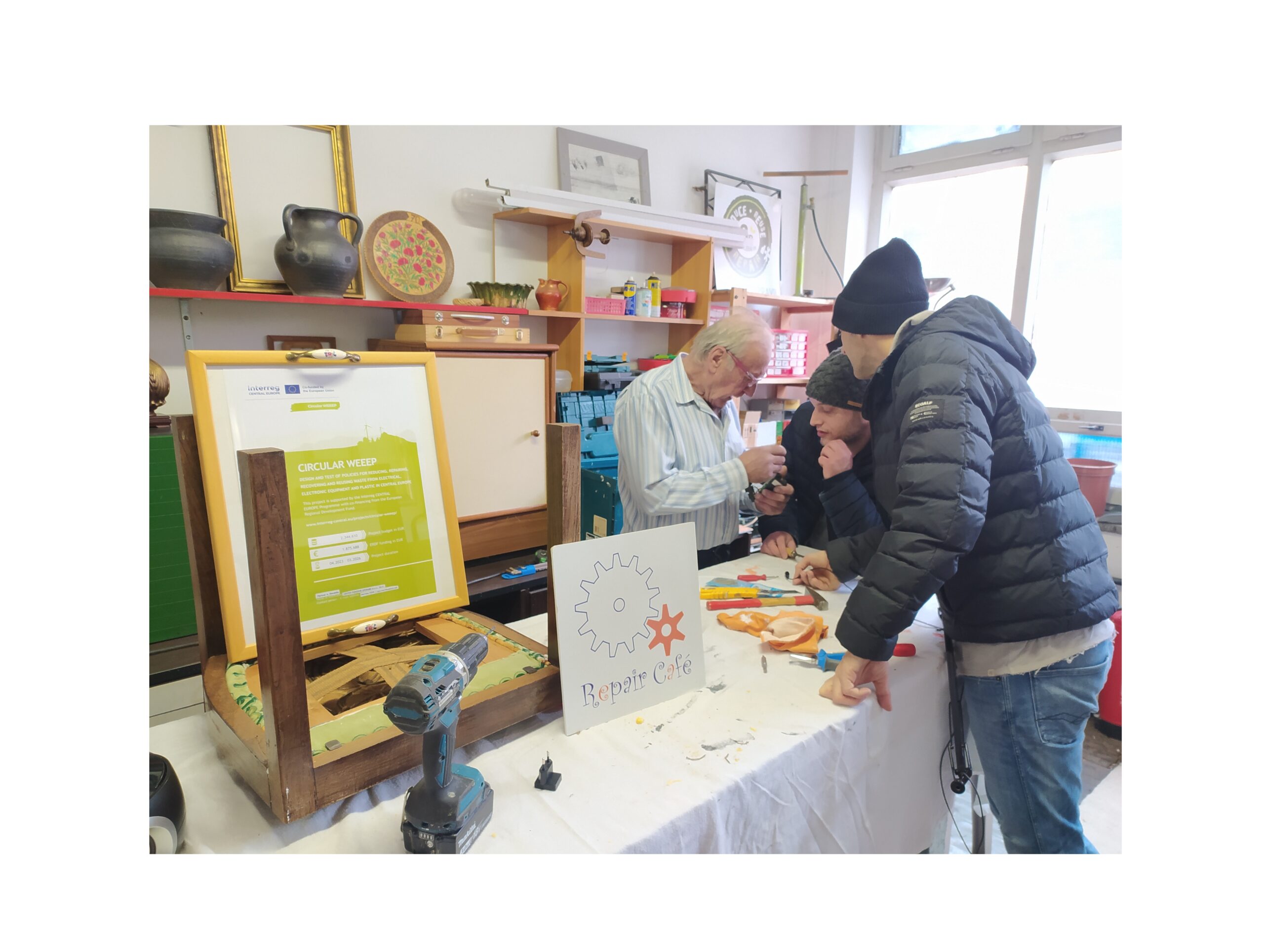Attendees brought a wide array of items seeking repair, ranging from sewing machines and lamps to textile products and chairs. Under the banner of the Circular WEEEP project, the workshop aimed to promote the principles of the circular economy by extending the lifespan of electronic and electrical products.
A key collaborator in this event was ZEOS, contributing to the cause with its “Still Useful” program. This program underscores the shared commitment towards sustainability, further emphasizing the community-driven approach to environmental responsibility.
The participants were organized into smaller groups, each guided by experienced mentors and volunteers. The emphasis was not only on repairing items but also on fostering knowledge exchange and skill development. This hands-on experience allowed participants to gain insights into repair techniques and better understand the inner workings of their possessions.
To supplement the practical aspect, a short lecture on the Circular WEEEP project outlined its overarching goals and potential environmental impact at local and global levels. Attendees were urged to reflect on their consumption habits and consider the positive impact of repairing existing items rather than opting for new ones. The enthusiasm surrounding the event reflected a growing awareness and eagerness among the community to embrace circular economy principles.
The workshop concluded with a reflection and experience-sharing session among participants. Organizers and participants alike expressed hope that such events would continue to proliferate positive environmental and societal impacts.
The Repair Café workshop, supported by the Circular WEEEP project and ZEOS’s “Still Useful” program, marks a pivotal step towards sustainable development. Beyond merely repairing items, these events contribute to a strengthened sense of community spirit, fostering a collaborative approach to environmental sustainability. The resounding success of the workshop not only highlights the value of repairs and reuse in the context of the circular economy but also sets the stage for future initiatives aimed at fortifying this collective commitment to a greener, more sustainable Europe.
